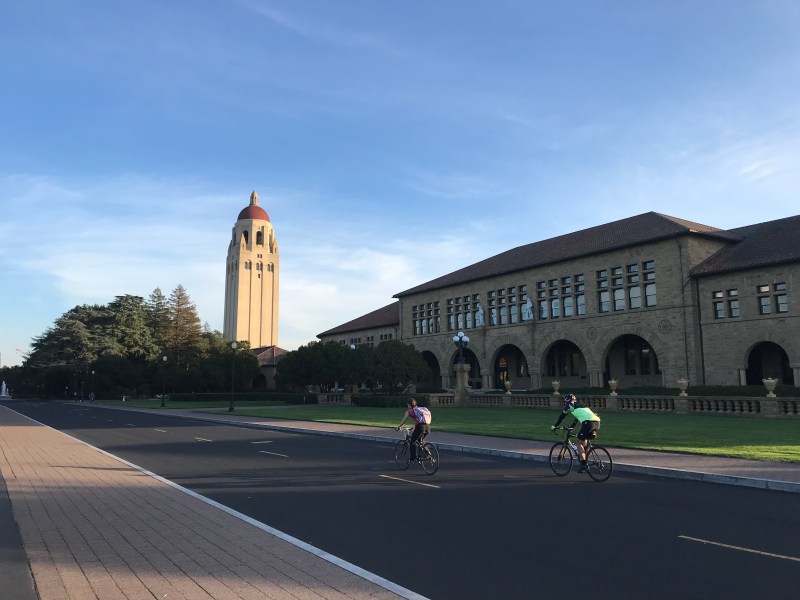Associated Students of Stanford University (ASSU) President Vianna Vo ’21 recommended the University not invite juniors and seniors to campus in spring quarter and instead prioritize graduate students and students with special circumstances. Recent events of noncompliance, COVID-19 conditions in Santa Clara County and expectations for the quality of on-campus life informed the recommendation, according to the executives.
Vo made this recommendation in a memo that was sent to Vice Provost for Student Affairs Susie Brubaker-Cole.
“When you bring back [juniors and seniors] who are familiar with campus and know quieter and more private places, there’s a concern that there might be more and more behavior in that vein which we were really concerned about,” said Vice President and third-year law student Christopher Middleton ’16, referring to reports of frosh having “large clandestine events.”
According to Vo, the executives made it clear to Vice Provost for Student Affairs Susie Brubaker-Cole that the memo was representative of the executive committee and people within ASSU, though the body was not able to survey students. Members of the Undergraduate Senate said they did not think the memo accurately captured the views of the student body.
“We do recognize this is a very controversial stance — not everyone is going to agree with it,” Vo said.
The memo comes as the week the University pledged to release more information about spring quarter nears — and the fate of juniors and seniors hoping for an on-campus spring is determined. The University announced in a Jan. 19 email that an update on spring quarter plans would be provided in the week of Mar. 1. According to Vo, an update on the timeline for spring quarter decisions will come in the next week.
The University did not immediately respond to a request for comment on the memo and timeline for spring quarter decisions.
Middleton stressed that the ASSU wanted to ensure that graduate students and students with special circumstances, including international, Queer and first-generation low-income students, “had a community that was safe for them on campus.”
The executives’ recommendations follow calls for more student involvement in the University’s decision-making process and pledges from the University to comply. The recommendation solicited by the University is a part of more consistent and transparent engagement with the ASSU, following the sudden cancellation of winter quarter and concern from students about accommodations.
Vo explained that the short timeline for the recommendation limited opportunities to engage student input, but stressed that all comments from ASSU internal review were incorporated in the memo. The memo was coordinated with the Graduate Student Council (GSC) co-chairs, according to Vo. The GSC urged the University against inviting undergraduates to campus in the spring unless health conditions significantly improve.
“Due to the quick turnaround for this memo, we were unable to survey the entire student body,” Vo wrote in the email to Brubaker-Cole. “We relied on the perspectives of members in the ASSU to make these recommendations. As such, we cannot state how reflective our stance is of the student body.”
Members of the Undergraduate Senate expressed skepticism about the contents of the memo.
ASSU Senate Chair Micheal Brown ’22 wrote in a statement, “I think there’s a nuanced, safe, and rational way for Stanford to continue operating somewhat like a university. College is supposed to be an educational community, and I think that’s somewhat lost in the ASSU memo.”
Senators also said they were not necessarily on board with the recommendation.
“I believe this recommendation was made with good intentions, but I don’t think it accurately captures the priorities of the broader student body,” wrote Senator Tim Vrakas ’21.
Senator Jonathan Lipman ’21 agreed: “It’s certainly important to recognize that people with special circumstances and many grad students have significantly reduced agency when making housing decisions, but I don’t think we as students can make public health judgments about what is safe or not,” he wrote.
Middleton stressed that he expects the decision to be guided by public health data and added that the ASSU was not claiming any expertise in that regard and were rather focused on evaluating the potential student experience on campus and “weighing in on whether or not that is worth the potential risk.”
If the University does invite students back to campus, executives said the ASSU is prepared to help create a safe environment for all students. The recommendation also outlines ASSU suggestions for policies to mitigate the possible stress for students in case of spring quarter cancellation.
Vo said she understood that some students would disagree with the recommendation and encouraged students to reach out to the ASSU and her personally if they had any concerns they wanted the ASSU to bring to administration.
“There are still outlets and opportunities to make your voice heard if you would want to,” Vo said.
Contact Kaushikee Nayudu at knayudu ‘at’ stanford.edu and Jordan John Lee at jjslee22 ‘at’ stanford.edu.
